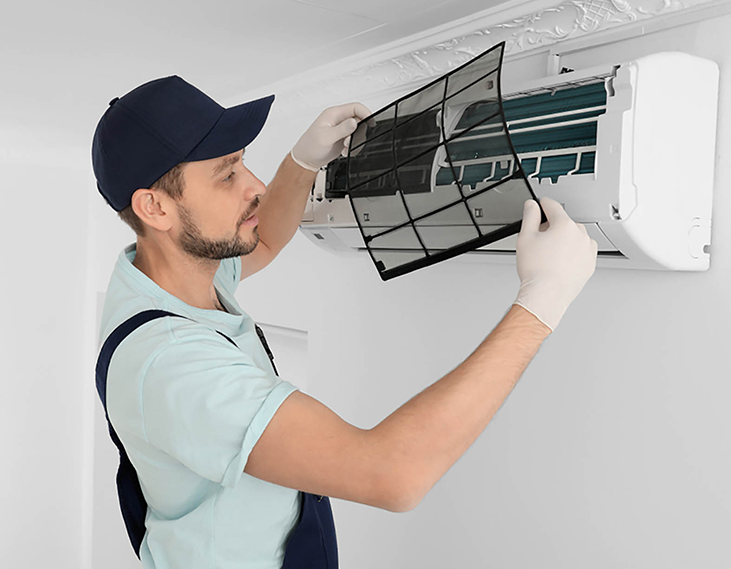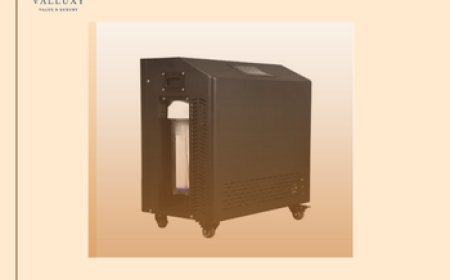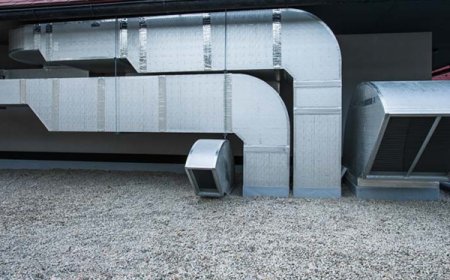Innovative Heating Technologies: What’s New in the Industry
Explore the latest advancements in heating technologies, including heat pumps, smart thermostats, and shaping the future of energy-efficient heating.

The heating industry is undergoing a significant transformation, driven by the need for energy efficiency, sustainability, and cost-effectiveness. As we move further into 2025, several innovative heating technologies are emerging, reshaping how we heat our homes and businesses. This essay looks into these developments, emphasising their advantages and prospects for the future of heat and ventilation.
1. Heat Pumps: Leading the Charge in Sustainable Heating
Heat pumps have become a cornerstone in the push towards decarbonising heating systems. These devices extract heat from external sources—air, ground, or water—and transfer it indoors, providing an efficient alternative to traditional gas boilers.
- Air Source Heat Pumps (ASHPs): These systems are particularly popular in the UK, offering efficient heating by extracting heat from the outside air. These are appropriate for a variety of assets types and can greatly cut energy costs.
- Ground Source Heat Pumps (GSHPs): By harnessing the earth's stable underground temperature, GSHPs provide consistent heating and ventilation. Still, they require more room and have higher installation expenses than ASHPs.
- Exhaust Air Heat Pumps: Ideal for apartments and smaller homes, these systems use the warm air already present in the building to provide heating, making them a cost-effective solution for urban settings.
Despite their higher upfront costs, heat pumps are eligible for government incentives, such as the Boiler Upgrade Scheme, making them an attractive option for homeowners looking to reduce their carbon footprint.
2. Smart Thermostats and IoT Integration
The addition of intelligence into heating systems has transformed how we regulate indoor temperatures. Smart thermostats, equipped with Internet of Things (IoT) capabilities, allow users to monitor and adjust their heating remotely via smartphones or voice assistants.
- Learning Algorithms: These thermostats learn user preferences and adjust settings accordingly, ensuring optimal comfort and energy efficiency.
- Geofencing: Some systems can detect when occupants are nearing home and adjust the temperature in anticipation, reducing energy wastage.
- Energy Monitoring: Updated information on usage of energy enables customers to spot patterns and take informed decisions to reduce costs.
These advancements not only enhance user convenience but also contribute to significant energy savings, aligning with the growing trend towards smart homes.
3. Solar-Assisted Heating Systems
Solar-assisted heating systems combine traditional heating methods with solar energy, offering a sustainable solution for homeowners.
- Solar Water Heating: Solar panels heat water, which is then used for domestic purposes, reducing reliance on gas or electric water heaters.
- Solar Air Heating: Solar collectors warm air, which is circulated through the home, providing space heating.
These systems can significantly lower energy bills and reduce carbon emissions. However, their effectiveness depends on geographical location and the amount of sunlight received.
4. Radiant Floor Heating
Diffuse floor heating systems generate warmth by flowing heated water or power lines below the floor surface.
- Hydronic Systems: These systems use heated water to warm the floor, offering consistent and comfortable heat distribution.
- Electric Systems: Electric cables or mats are installed under the floor, providing quick and efficient heating.
Radiant floor heating is particularly beneficial in areas with high ceilings or open spaces, as it eliminates the need for traditional radiators and ensures even heat distribution.
5. Hybrid Heating Systems
Mixed furnaces integrate several technologies to maximise energy efficiency.
- Heat Pump and Gas Boiler Combination: These systems switch between a heat pump and a gas boiler based on efficiency, ensuring cost-effective heating.
- Solar and Electric Systems: Solar panels provide energy when available, and electric heating takes over when solar energy is insufficient.
Hybrid systems offer flexibility and efficiency, making them suitable for various property types and climates.
6. Emerging Technologies on the Horizon
Several emerging technologies are poised to further revolutionise the heating industry.
- Ionocaloric Refrigeration: This technology uses electrochemical fields to transfer heat, offering a zero-emission alternative to traditional refrigerants. It has the potential to provide efficient heating without harmful environmental impacts.
- AI-Driven Heating Systems: Artificial intelligence can optimise heating systems by learning user behaviours and adjusting settings for maximum efficiency.
- Thermal Energy Storage: Storing excess heat for later use can balance supply and demand, reducing energy costs and enhancing system efficiency.
While these technologies are still in development, they hold promise for the future of heating and ventilation.
7. Regulatory Landscape and Incentives
Government policies play a crucial role in encouraging the adoption of innovative heating technologies.
- Incentives and Grants: Programs like the Boiler Upgrade Scheme offer financial support for installing energy-efficient heating systems.
- Regulations: Stricter building codes and energy efficiency standards are pushing the industry towards more sustainable practices.
Homeowners and businesses are encouraged to stay informed about available incentives and regulations to take advantage of these opportunities.
Air Conditioning Company in London: Key Features and Benefits
When searching for an air conditioning company London, it’s essential to choose a reliable and professional service provider to ensure your system operates efficiently and effectively. Below are the key features to look for when selecting an air conditioning company in London:
Wide Range of Services
- A comprehensive air conditioning company offers services beyond just installation. These should include maintenance, repair, and emergency services to keep your system running smoothly all year round.
Energy-Efficient Solutions
- Many air conditioning companies now provide energy-efficient systems that help reduce energy consumption and lower utility bills. Selecting a company that expertise in energy-efficient solutions will help both you and the natural world.
Customised Solutions
- The best air conditioning companies understand that each home or business has different needs. They should offer customised air conditioning solutions, ensuring your space is cooled or heated effectively.
24/7 Availability and Emergency Services
- Whether you need immediate repairs or an urgent installation, having access to a company that’s available at any time can be crucial.
Conclusion
The heating industry is embracing innovation to meet the challenges of energy efficiency and sustainability. Technologies like heat pumps, smart thermostats, and solar-assisted systems are leading the way, offering homeowners and businesses effective solutions to reduce energy consumption and lower costs. At Hamilton Air Con, we are committed to providing cutting-edge heating and ventilation solutions that align with these advancements. Our expertise guarantees that clients receive customised systems that improve comfort and efficiency, thereby aiding in a better tomorrow.




































































